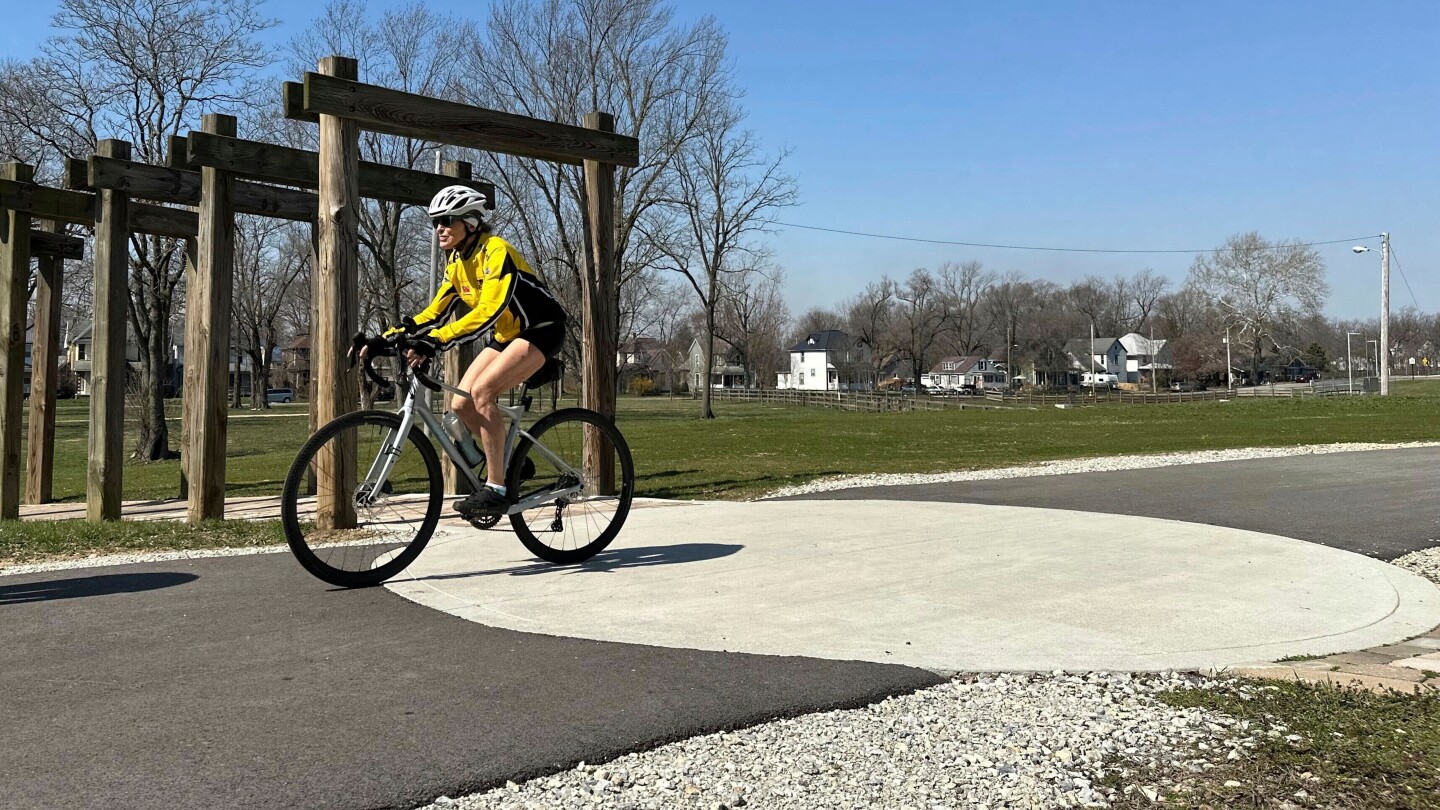Trump’s transportation department withdraws grants for bike lanes and trails
CHICAGO (AP) — President Donald Trump’s transportation department has been pulling back grants already announced for recreational trails and bicycle lanes, telling local officials their projects fail to promote road capacity or are “hostile to motor vehicles.”
The department recently sent letters to local governments in at least six states — Alabama, California, Connecticut, Illinois, Massachusetts and New Mexico — informing them it was withdrawing money awarded under the $1.1 trillion infrastructure law former President Joe Biden signed in 2021.
The reversals are among the clearest signals yet of the drastic shift from the Biden administration’s emphasis on alternative transportation, such as transit and biking, to the Trump administration’s focus on preserving and expanding lanes for cars and trucks.
While the new grants Trump’s transportation department has announced this year reflect that change, it’s practically unprecedented for an administration to claw back grants awarded by a predecessor without a compelling reason, such as potential environmental harms. However, the latest recalled projects didn’t have fully funded grant agreements in place, which would have made reversing them far trickier.
The transportation department’s press office didn’t respond to emails requesting comment.
Prioritizing roads, not trails
Connecticut won a $5.7 million federal grant last summer to help design segments of a 44-mile (71-kilometer) recreational trail connecting several communities along the Naugatuck River.
Rick Dunne, executive director of the Naugatuck Valley Council of Governments, said the grant’s final details were being negotiated when the U.S. Department of Transportation sent a letter this month to inform local officials that the project wouldn’t move forward. The agency wants “multimodal grant programs” to focus on “projects that promote vehicular travel,” the letter explained.
“They’re defining quality of life for Americans as enhancing automobile operations,” Dunne said.
The same reason was given in a letter sent to Albuquerque, New Mexico, pulling $11.5 million in funding for a leg of a rail trail cutting through the city’s core. It was among the first active transportation projects awarded under the infrastructure law, with funding announced in 2022, but it was still going through the approval process.
“We are going to stand up for Albuquerque and prevent the Trump Administration from pulling money from a project the people of Albuquerque want,” Mayor Tim Keller said in a press release. “We will see you in court.”
Kevin Mills, vice president of policy for the Rails to Trails Conservancy, called the cuts “an affront to the priorities set by Congress and Americans’ demands for safer, more convenient walking and biking routes.”
DOT also withdrew a $20 million grant awarded in 2022 to transform three streetscapes in Boston. The reversal was based in part on the project’s electric vehicle charging stations, which the administration said contradicted its preference for promoting “traditional forms of energy and natural resources,” the Boston Globe reported.
No project too small to cut
Some of the withdrawn projects were relatively small in dollars and scope but still targeted for reversal due to the department’s changing priorities.
One applied to just a single block in San Diego County, California, where the community wanted to test whether it could improve safety without disrupting traffic flow. It sought to employ “creative roadway features” such as roundabouts in place of traffic signals, with plans to expand the approach to other intersections if the model proved successful, said Donna Durckel, spokesperson for the county’s Land Use and Environment Group.
But Trump’s transportation officials flagged it as “hostile to motor vehicles” in a letter sent Sept. 9 because the project included a so-called road diet that would have reduced the stretch from four lanes to two.
On the same day, McLean County in central Illinois got a similar letter recalling federal funding awarded last year to help design a final 9-mile segment of a bike and pedestrian trail along Route 66. County engineer Jerry Stokes said the project wouldn’t affect motor vehicle travel but would promote safety by getting bicyclists and pedestrians off the road.
“We’re kind of at a standstill now until new funding sources become available,” he said.


